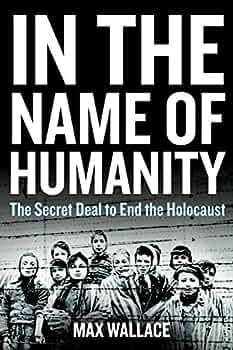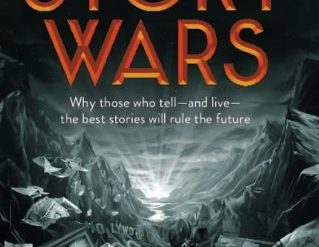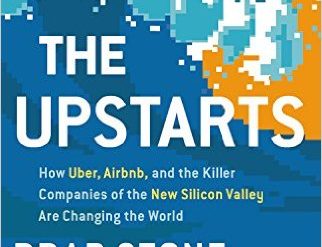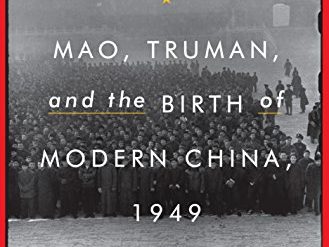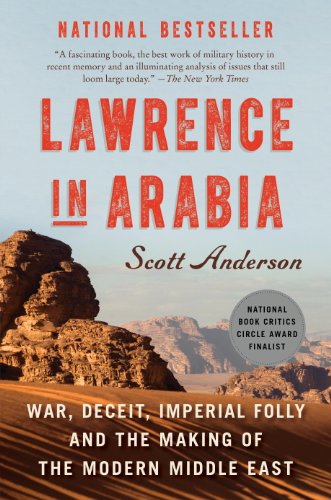
Someone famous probably urged us never to delve too deeply into the lives of our heroes since we’re so likely to become cruelly disappointed. And you may have held a vision of Lawrence as one of the few genuine heroes of the 20th Century—a vision nourished by David Lean’s 1962 film masterpiece. But you can’t read Scott Anderson’s biography of Lawrence of Arabia in the context of the First World War in the Middle East and emerge with that image unscathed. Because T. E. Lawrence—archaeologist, author, diplomat, warrior—was a piece of work.
Estimated reading time: 5 minutes
In Anderson’s expert telling, Lawrence was moody, arrogant, deceitful, possibly masochistic, and even, in one dramatic episode, traitorous. Of course, he was also brilliant, brave to the point of foolhardiness, and an extraordinary wartime leader of men.
In Lawrence in Arabia, Scott Anderson views the man through a wide-angle lens. Although his focus is squarely on Lawrence himself, he probes the life and work of his subject from the years before the war until his death in 1933 in tandem with three other remarkable figures in the unraveling of the Ottoman Empire, the awakening of Arab nationalism, and the emergence of the Jewish state in Palestine.
Lawrence in Arabia: War, Deceit, Imperial Folly and the Making of the Modern Middle East by Scott Anderson (2013) 580 pages ★★★★☆
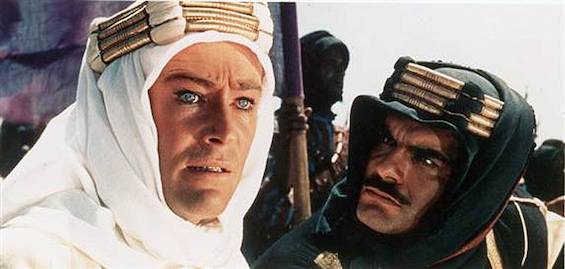
Three other remarkable figures
- Curt Pruefer was, like Lawrence, an academic thrown into the chaos of the Middle East. In the course of the war, he came to head German espionage activities in the region and was, in effect, Lawrence’s counterpart.
- William Yale, an American descended from the founder of the university that bore his name, was an operative for Standard Oil turned State Department intelligence operative.
- Aaron Aaronsohn was an eminent Jewish agronomist who developed and ran Britain’s largest spy network in the region. He was so passionate an advocate for the founding of a Jewish state that he openly sparred with Chaim Weizmann, then the leader of world Zionism and the beloved first President of Israel.
On Lawrence’s meandering path through the region, he met both Yale and Aaronsohn, and in both cases the men took an instant dislike to one another, a disturbingly common circumstance in the Englishman’s life. But fortunately the Englishman and the German never encountered each other, since one might well have killed the other.
“Deceit and folly” in this biography of Lawrence of Arabia
Don’t think for a minute that Lawrence stands out for his sins in comparison with his contemporaries in the region. Anderson’s subtitle refers to “war, deceit, and imperial folly,” and for good reason. Both Pruefer and Yale were deceitful to the point of treachery as well. And the British diplomats and military men surrounding Lawrence were, on the whole, so duplicitous themselves and so patently incompetent that Lawrence’s behavior could sometimes be easily understood. In fact, the deplorable picture of war in the Middle East that emerges from Lawrence in Arabia is a worthy reflection of the senseless slaughter that characterized the war in Europe. There, millions of young men were needlessly dying from Gallipoli to the Somme as a result of the utter stupidity and pigheadedness of the military leadership of the warring Great Powers.
Lawrence in Arabia is as dense a work of history as any academic study and eminently readable to boot. It casts a bright light on a frequently neglected aspect of World War I. Lawrence called it “a sideshow of a sideshow,” which greatly underrates its historical importance. And it illuminates the forces that helped create the tragic state of the Middle East today.
About the author

Scott Anderson is the author of seven works of nonfiction and two novels. His best-known work is this biography of Lawrence of Arabia. He frequently contributes to mainstream national magazines. Born in 1959, he grew up in East Asia, primarily Taiwan and Korea, where his father was a US government agricultural adviser. His brother is Jon Lee Anderson, an author and journalist. (They have co-authored two books.) Anderson currently lives in Brooklyn, New York.
For related reading
I’ve also reviewed the writer’s later book, The Quiet Americans: Four CIA Spies at the Dawn of the Cold War (Four CIA spies who helped set US policy in the 1940s and 50s).
Like to read good biography? Check out Great biographies I’ve reviewed: my 10 favorites.
And you can always find my most popular reviews, and the most recent ones, on the Home Page.

